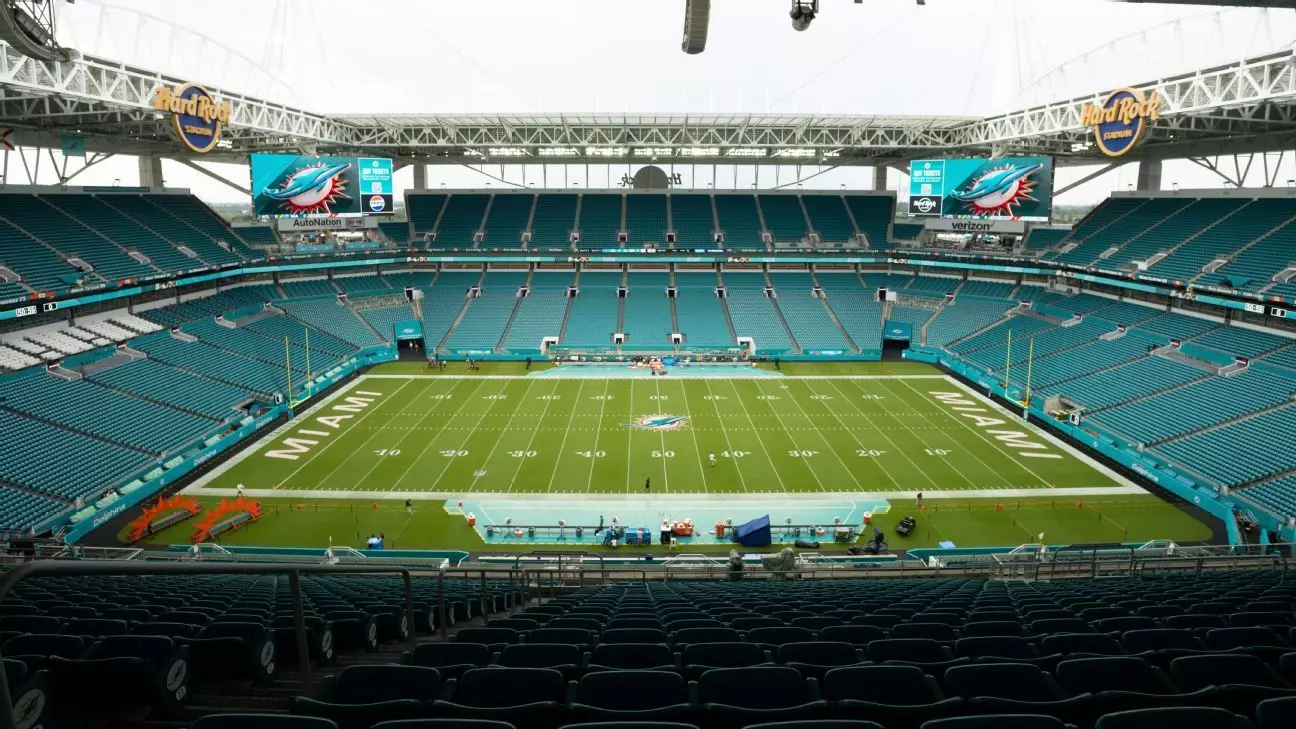LaLiga is facing an intriguing yet contentious endeavor: the prospect of hosting a competitive league game in Miami. Javier Tebas, the president of LaLiga, has reiterated his ambition for this initiative to come to fruition, provided that a consensus is reached with the Spanish Football Federation (RFEF). This undertaking, however, invites a multifaceted examination of international sports governance, player welfare, and the commercial aspirations driving such innovations.
Back in 2018, Tebas attempted to orchestrate a thrilling match between Barcelona and Girona at Miami’s Hard Rock Stadium—a move that faced immediate backlash from both the RFEF and FIFA. These organizations argued that such an event was not aligned with the principles of competitive integrity and the sanctity of local football traditions. The failure of Tebas’s initial plans painted a clear picture of the challenges that come with international expansion for domestic leagues, especially when juxtaposed against national federation regulations and the broader landscape of global soccer governance.
With a recent lawsuit involving the Relevent Sports Group—a company owned by Stephen Ross, owner of the Miami Dolphins—the door has once again swung open for holding LaLiga matches on U.S. soil. This development is critical as it signifies a glimmer of hope for Tebas’s aspirations, yet it also surfaces deeper questions regarding the power dynamics between leagues, federations, and FIFA itself. The lawsuit’s resolution in favor of Relevent illustrates a shift in the landscape, potentially empowering leagues to explore lucrative international opportunities that have long been stymied by bureaucracy.
Despite the optimism surrounding the prospect of a LaLiga match in Miami, Tebas underscored the necessity of collaborating with the RFEF. The current vacuum in leadership within the RFEF—evidenced by the absence of an elected president—heightens the complexities of reaching an agreement. As negotiations continue to linger without a clear resolution, the ambition for a Miami game remains shrouded in uncertainty. This scenario underscores a critical aspect of sports governance: the intricate links between league ambitions and regulatory frameworks.
Moreover, the context of these discussions is heightened by sentiments within the player community. Tensions are escalated by a growing apprehension regarding the congested soccer calendar, with players like Rodri expressing concerns about potential strikes due to overwhelming fixture demands. The rifts between league administrators, players, and associations present a precarious juxtaposition of interests that is symptomatic of a sport grappling with modernization alongside traditional constraints.
As LaLiga seeks to expand its global reach, the broader implications of such moves come into focus. The impending 32-team Club World Cup scheduled to take place in the U.S. next summer exacerbates the situation by intensifying fixture congestion, which in turn poses a risk to player welfare. David Aganzo, president of the Spanish Players’ Union, has signaled a willingness to support players should they choose to strike if accommodations aren’t met. Tebas’s recognition of these sentiments, stating that he doesn’t view support for a match in Miami as contradictory to his opposition to the Club World Cup, reveals the complexities in navigating the commercial aspirations of leagues and the ethical obligations relating to player management.
This multilayered scenario provokes reflections on the future trajectory of soccer, particularly concerning the sustainability of expanding leagues into foreign markets while adhering to player welfare concerns. As Tebas attempts to renegotiate the boundaries of LaLiga, he must consider the realities on the ground—both from a governance perspective and from the players who play the sport.
The pursuit of LaLiga games in Miami embodies a convergence of ambitious globalization strategies and pressing internal challenges. The discussions surrounding this move present a critical moment for LaLiga, revealing the delicate balance between expanding brand presence and ensuring the protection of the players who drive the sport’s success. As administrators like Tebas grapple with these conflicting priorities, the future of LaLiga and its international ventures remains a topic ripe for scrutiny, debate, and evolution.

